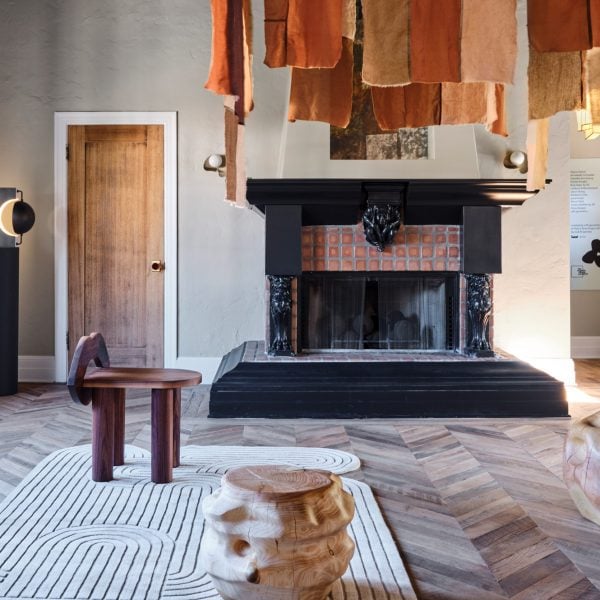Collaborations between artists and designers and a show celebrating local chair makers were part of Los Angeles Design Weekend, which organisers said was successful due to its localised “progression of events”.
Last month, dozens of designers, architects and organisations came together to highlight makers and showrooms across the city, a feat that is usually hindered and avoided because of the urban layout of Los Angeles – notorious for its sprawl, super highways and traffic jams.
“LA is a hard city to activate due to its sprawling and car-focused nature. When programming the weekend, I planned the weekend I personally would want to have – one where I can scoot and walk more than drive – while seeing beautiful work and mingling with my community,” Los Angeles Design Weekend (LADW) founder Holland Denvir told Dezeen.
“All weekend long folks were coming up to me, expressing their love of the map and the progression of events. Enabling walking from event to event increased the social nature of the weekend. I’m honestly blown away that it worked so well. It was a hypothesis I had, and this was a successful experiment.”
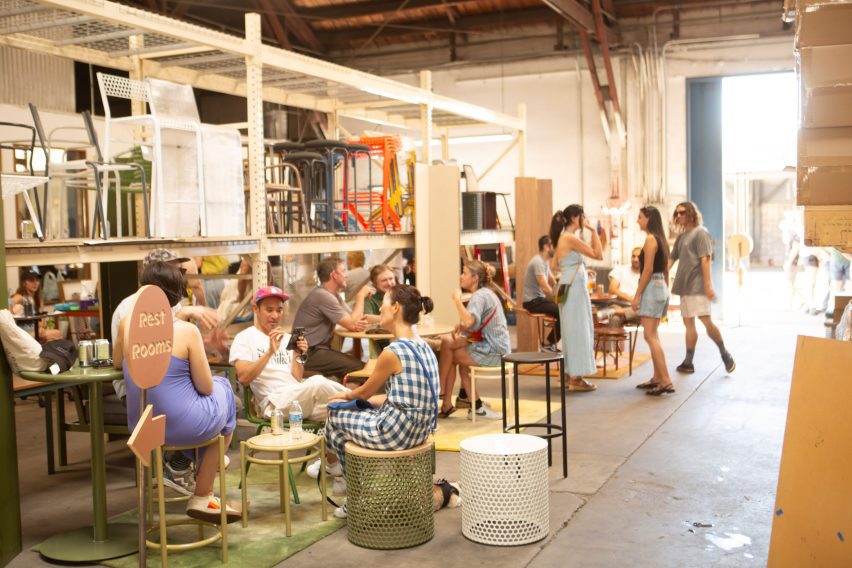
The fair was broken down into neighbourhoods, mostly in East Los Angeles and Downtown LA, taking advantage of expansive outdoor areas and post-industrial lofts occupied by furniture designers, interior designers and architecture studios.
LADW co-founder Meghan McNeer said the fair drew on the community that is “hungry to champion each other and themselves”.
“There’s this mix of a Wild West with a Hollywood sort of dream big mentality, combined with the fact that people have studios and space to make and create results in an expansiveness,” McNeer told Dezeen.
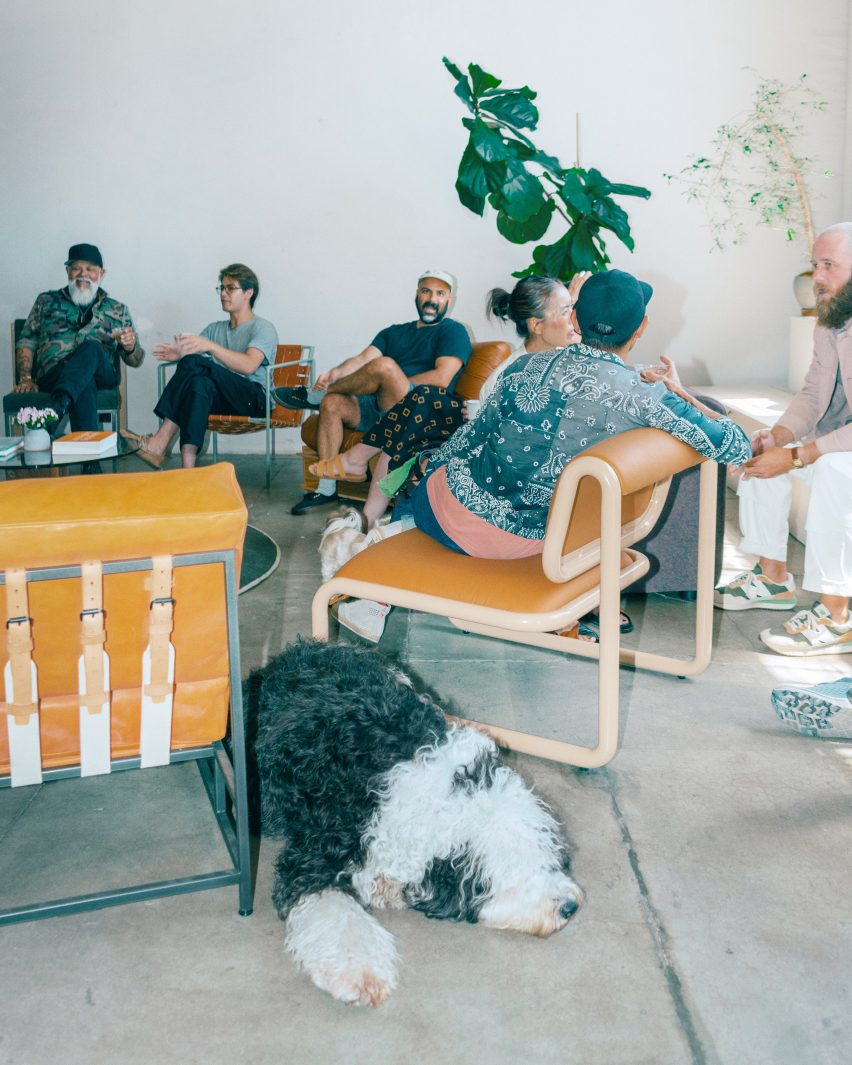
The first day of the fair was anchored in downtown Los Angeles, and was kicked off by a group show organised by local designer and design critic Eric Trine.
Called LA Chair – with a phenomenal insignia playing on classic apparel brand LA Gear’s logo – and hosted at the Downtown LA studio of designer Stephen Kenn, the show featured a simple circle of chairs by Californian designers.
The show showcased furniture with “visible armature” and construction and the only criteria was that people “had to be able to sit in the chairs”, said Trine, who noted he’d been frustrated by people “rejecting” others from sitting in chairs at recent furniture fairs he’d attended.
LA Chair was a response to a perceived over-aestheticization of seating and featured chairs by Trine and Kenn as well as by designers Hoada Ma, Brendan Sowersby, and Bend Goods, among others.
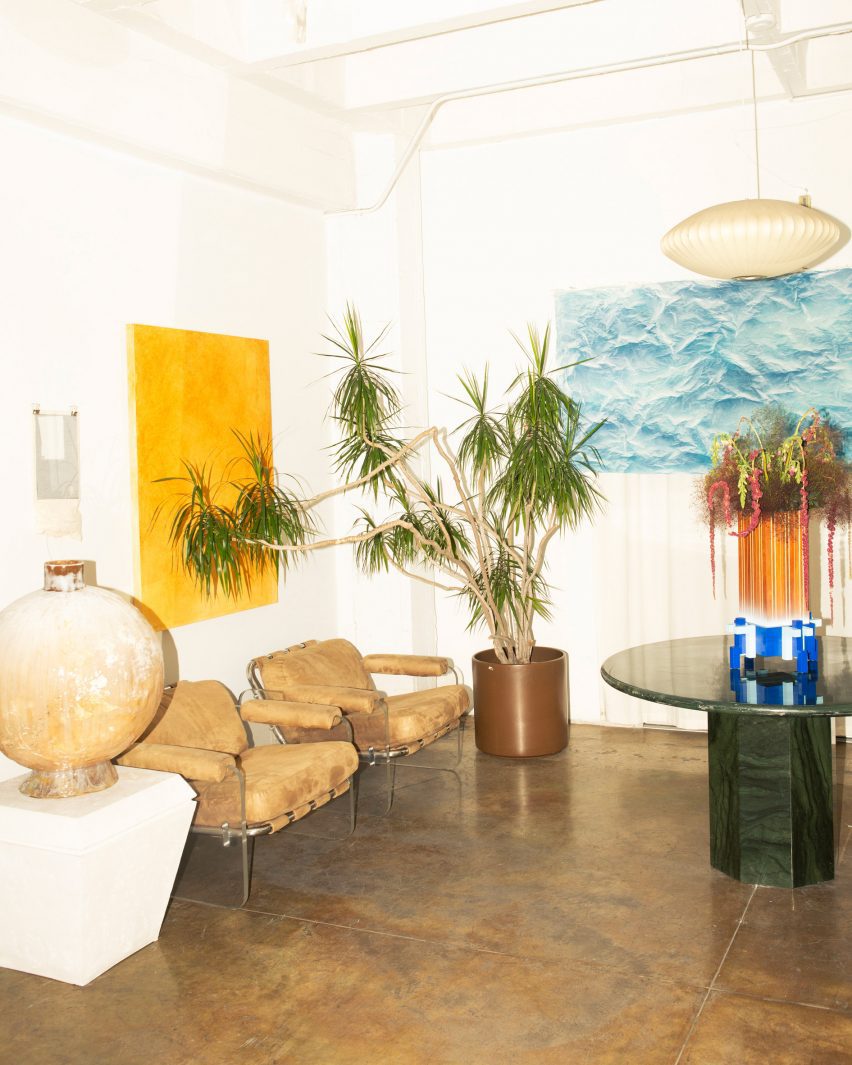
Also downtown was a series of group shows, including the yearly variation-on-a-theme show Object Permanence, a Los Angeles iteration of the San Francisco show Vessel – including works by NJ Rossetti and Studio OthrSpce – and a show called Mind Meld.
Mind Meld featured collaborations between local designers and artists, including a stand-out piece called The Chair You Wear, designed with wearable upholstery by local design studio Hubba Hubba and fashion designer Francisco Alcazar.
Also included was a collaboration between artist Debbie Bean and designer Adi Goodrich, who told Dezeen the weekend was a “huge sigh of relief”
“I finally felt like our community was being showcased in an authentic way,” said Goodrich.
“LA Design Weekend definitely set a new standard for showcasing the incredible design scene that’s thriving here – and the best part of it was that everyone was welcome to participate.”
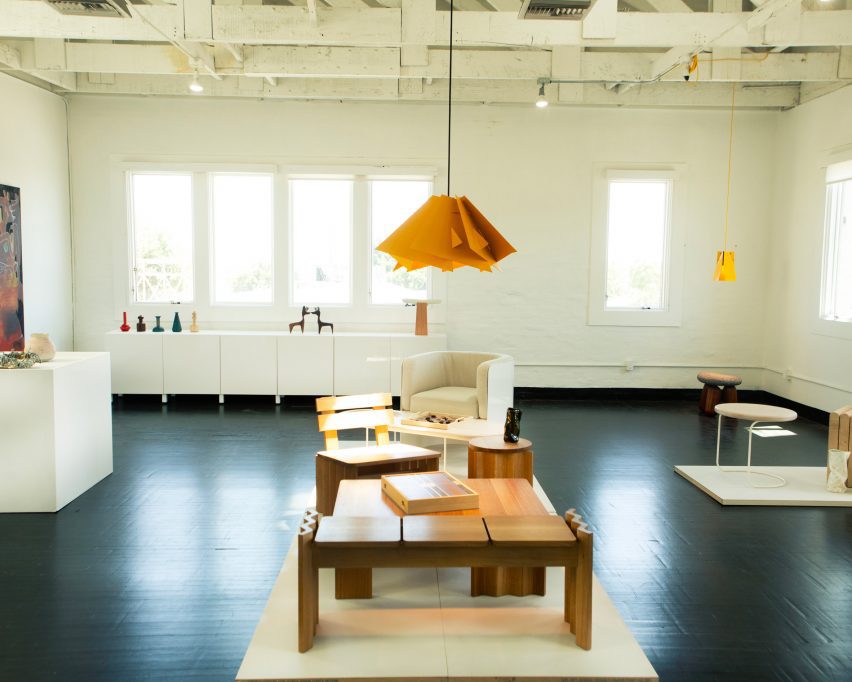
The second day of the fair was based largely around the city’s Chinatown, with brands like Noni Design House and Base and architecture studios like Formation Association opening their studios for gatherings and tours.
Of note was a group show in Lincoln Heights called Open Edges at gallery Winstons, curated by Woodbury professor and designer Parsa Rezaee, whose own work in the show included decor informed by body piercings.
According to Rezaee, the show included “every” submission received.
“At Winston’s, the curatorial challenge lay in balancing the hyper-precision of design elements with the more chaotic and erotic aesthetics of the submitted artworks,” she told Dezeen.
“These aesthetic tensions are often seen in the domestic, and the showcase flickered between the familiarity of a living room and the sterility of a gallery.”
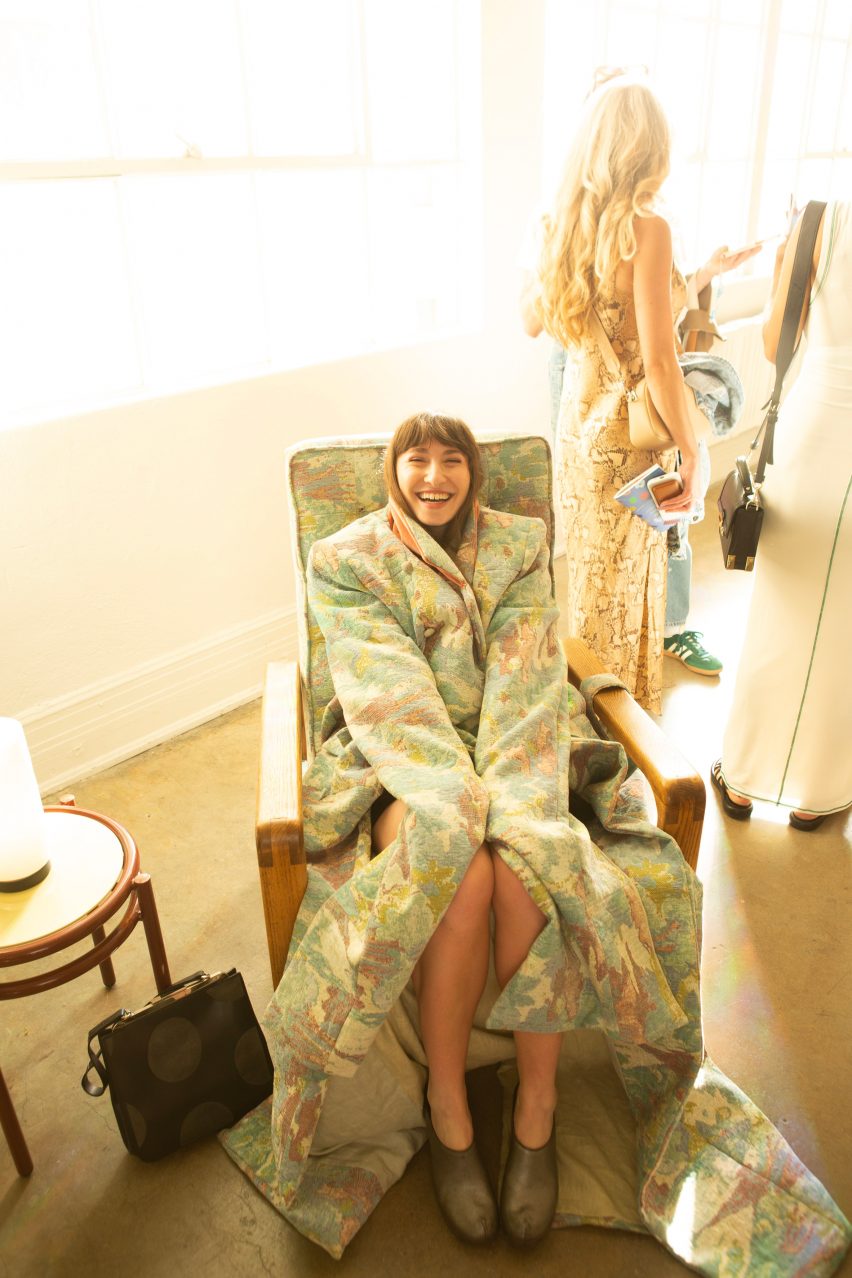
Also included were lighting designs by Studio Alex Hsu and Perhacs Studio, as well as wooden furniture by designers Hanneke Lourens and Jialiang Guo.
Other groups shows on Saturday included Garden Party at the office of local landscape architecture studio Terremoto, which included works by local designer srtudios such as Waka Waka, Estudio Persona and Lland.
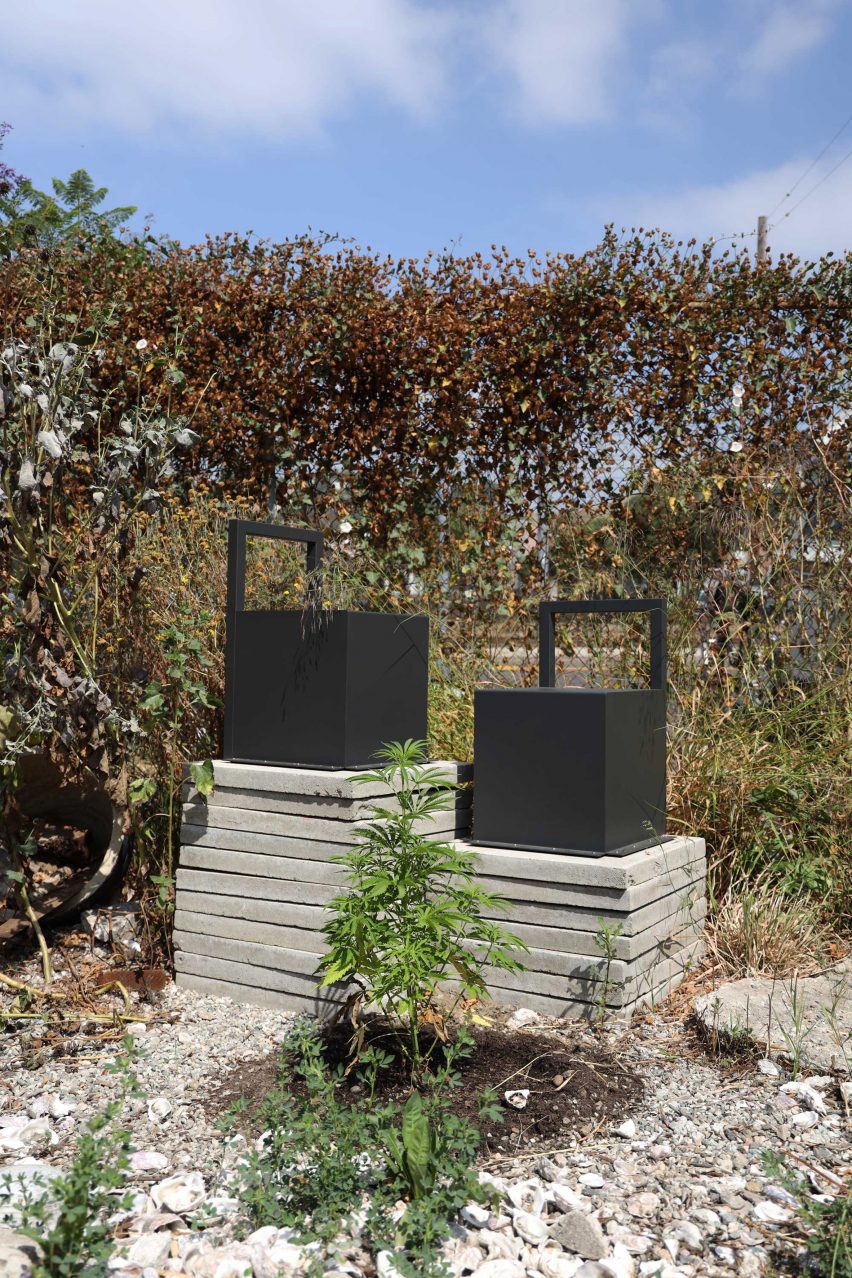
Social events included gatherings at the headquarters of outdoor furniture company Rad Furniture and a dance party at Silverlake art gallery Marta.
The final day of the show, Sunday, featured further open houses clustered around the Echo Park neighbourhood, with a primary group show called Open House curated by California design studio Soft Geometry.
While the weekend was founded in order to bridge the gap after the Los Angeles Design Festival, the other main design event, announced it would move to a biannual model, after its long Covid-19 pandemic hiatus.
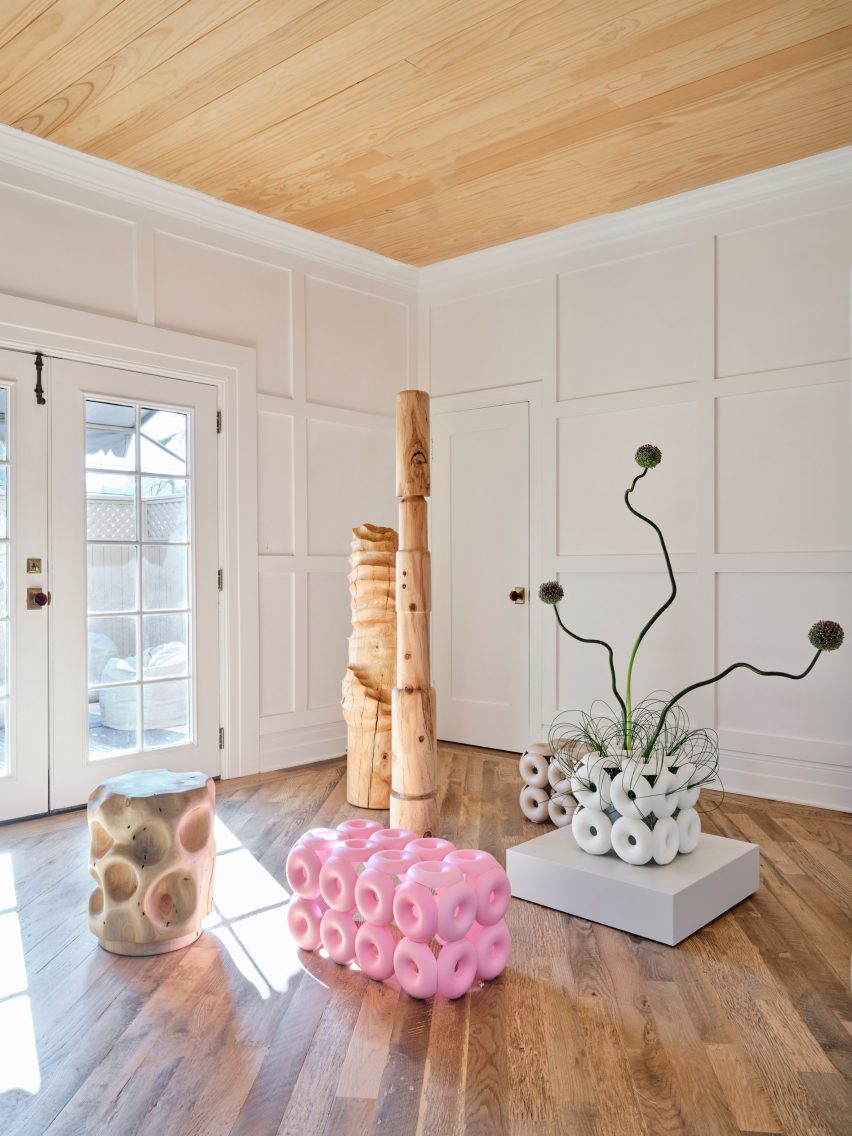
Denvir said that the LADW team, which consists mostly of volunteers, is deliberating over the future timing of the event, and whether or not it will move to include other neighbourhoods.
“We’ll likely pop up at different times throughout the year,” said Denvir.
“We want to keep the future of LADW open. Our first rule is there are no rules, and I think that applies to the structure of the weekend as well.”
The photography is by Sydni Stearns unless otherwise stated.
Los Angeles Design Weekend took place from 21 to 23 June in locations across Los Angeles. For more events, festivals and talks in architecture and design visit Dezeen Events Guide.

